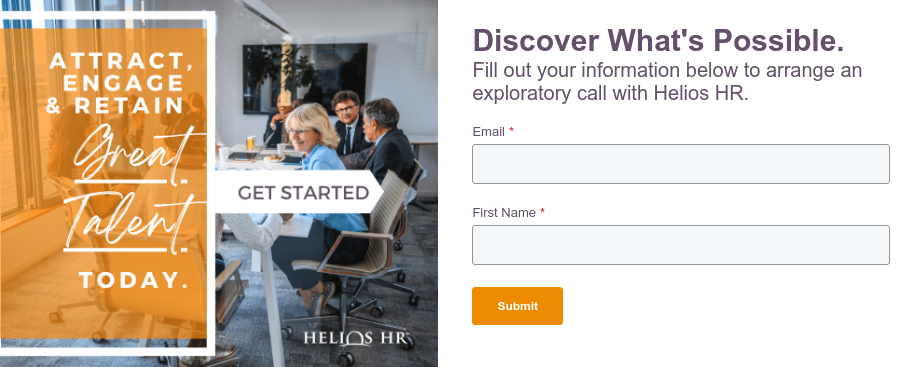By: Amy Dozier on November 27th, 2024
10 HR Trends That Will Shape the Employee Experience in 2025
The past year has been full of surprises, especially for HR leaders. Changes in economic conditions, the recruitment market, and overall trends in employee relations may have caused a lot of organizations to rethink their overall human capital strategy.
Will 2025 be as unpredictable? It's impossible to see into the future, sadly, but we can identify some trends that might impact recruitment and engagement. If you're ready to respond to these trends, you stand a good chance of thriving in the year ahead.
10 HR trends to watch in 2025
So, what does 2025 hold for us? Once again, we’ve asked our consultants to look at what lies ahead and how it might affect your business. Some of the main trends to watch include:
- Potential changes to the regulatory environment
- AI policies continue to develop
- Changing approaches to change management
- An increased focus on leadership capability
- The remote work debate continues
- Mental health remains a concern
- Greater choice of wellbeing benefits
- A major generational shift is occurring
- Leave management is evolving
- Cultural alignment matters more than ever
Let's take a closer look at each and offer some advice for the year ahead.
1. Potential changes to the regulatory environment
2025 will see major changes in the federal government. The incoming administration has broadly promised to reduce regulations, which could mean less compliance work for HR teams.
How will this affect employee experience? We don't know for sure yet but SHRM's pre-election guide indicated that we can expect to see a rollback on changes to things like overtime rules, independent contractor status, joint employer rules, and non-compete agreements. It's also expected that employment visas rules will become more restrictive.
It's unclear what will happen in other areas, such as caregiver support, FMLA, and pay transparency. Also, it's important to remember that state and local rules may not move in the same direction as federal guidelines.
Helios HR advice
- Review your current compliance processes
- Be prepared to respond to regulatory changes
- Communicate any changes to employees, especially in relation to core benefits such as overtime or FMLA
2. AI policies continue to evolve
Generative AI tools are increasingly common, but many businesses haven't seen the expected benefits. A Gartner study found that 47% of employees don't see a way to improve productivity with AI, while 77% of people say that Artificial Intelligence has created more work for them.
HR's primary role is to provide training and support, especially when the organization is deploying new AI tools. Many organizations are taking an approach to upskilling that focuses on flexibility and self-led training.
It's also important to develop well-documented processes for optimal AI usage. Having an AI policy framework is also helpful, as it can clarify best practices and help avoid cybersecurity risks.
Helios HR advice
- Encourage process reviews with a focus on automation
- Educate users about AI best practices and security concerns
- Make sure everyone receives training on any new AI-related tools or processes
3. Changing approaches to change management
From the pandemic to remote work to AI—this has been a decade of constant change. Employees are exhausted, with 73% of HR leaders saying that “change fatigue” has impacted engagement.
There’s also a leadership issue, as 74% of HR leaders say that change management is a challenge for their organizations. The result is lost opportunities, lower engagement, and increased staff turnover.
As a result, many leaders are now focusing on new strategies for change management. This includes improved communication and better training. It also means recognizing and dealing with change fatigue.
Helios HR advice
- Communicate the reasons for any major changes, including technology adoption or new processes
- Encourage small, focused change projects instead of radical transformations
- Train leaders on change management techniques or bring in experienced change management consultants
4. An increased focus on leadership capability
Employers placed a greater emphasis on staff retention last year, which sometimes means asking difficult questions. People often say that “employees don’t leave jobs, they leave managers”, so it’s important to ask if you have the right managers in place.
Internal leadership evaluations can highlight problems, such as managers who don’t have the right skills for working with remote employees. Leadership development training can solve some of these problems, turning good managers into great ones.
2025 will see most companies continue to work on improving engagement and retention. Developing and upskilling leaders might be the most effective way to do that.
Helios HR advice
- Use pulse surveys and exit interviews to learn more about managerial effectiveness
- Work with managers to create personalized leadership development training programs
- Monitor employee engagement to identify any problem areas
5. The remote work debate continues
2024 was supposed to be the year that all teams finally returned to the office. Despite some high-profile headlines about this, BLS data seems to indicate that remote work has grown over the past year. The average person worked remotely for 6.3 hours per week in October 2024, compared to 5.6 hours in 2023.
Looking at averages doesn't tell the whole story, of course. Some companies are keen to use remote workers, while others need their people on-site. Equally, some employees prefer working from home, while others would rather sit alongside their teams.
No doubt, 2025 will see further debate about remote working. It will be each employer's responsibility to decide what's best for their team, and that's a matter that can only be settled through open dialog.
Helios HR advice
- Talk to employees about their remote working preferences
- Try to accommodate where possible, especially for employees with accessibility issues
- Communicate openly about the reasons for any return-to-office policies
6. Mental health remains a concern
In recent years, employers have realized the importance of mental health and its role in employee wellbeing. Workplace stress is a major factor, but even that is just one piece of the larger puzzle.
The latest studies raise further concerns for the year ahead. A survey of younger workers by Deloitte found that 38% of Millennials and 45% of Gen Z feel anxious or stressed on a regular basis. The three biggest causes of stress are concerns about their long-term financial future (50%), wellbeing of family (46%) and day-to-day finances (45%).
All of these stressors are related to Total Rewards such as compensation, professional development, and access to healthcare benefits. Employers can help soothe employee tensions by working on financial wellbeing support and ensuring that employees have suitable benefits.
Helios HR advice
- Speak to employees about their mental health and wellbeing
- Promote mental health benefits included in Total Rewards
- Help employees develop a career path that offers job security and opportunities for progress
7. Greater choice of wellbeing benefits
Employee wellbeing is one of the most crucial parts of Total Rewards. During the pandemic, most people realized that salary wasn’t everything—you also need security, good health, and a sustainable work-life balance.
Employers have been supporting wellbeing by providing an increasing range of wellness-related benefits. On top of health coverage and gym memberships, there has been a rise in benefits like massage, mental health support, and paid leave.
There’s also a growing trend for Lifestyle Spending Accounts (LSAs). These accounts make it easier for employees to save up toward lifestyle and wellness benefits that suit their personalized needs. Employees can access the LSA when required or let it grow for their future benefit.
Helios HR advice
- Offer a flexible range of wellness benefits to suit all lifestyles
- Communicate wellness benefits options to the team
- Review benefit uptake and seek alternatives for any underused benefit options
8. A major generational shift is occurring
We’ve seen five distinct generations in the workforce in recent years, with Millennials working alongside members of the Silent Generation. Each generation presents a different set of HR challenges, such as their different preferences in learning styles, leadership, and benefits.
Last year saw Baby Boomers retire in record numbers. By October of 2024, Boomers were outnumbered in the workplace by Gen Z. Equally, we've also seen senior leadership positions taken up by Gen X and Millennial employees, who are themselves entering the latter part of their career journeys.
This has huge implications, including knowledge transfers, succession planning, and benefits coordination. Employers will have to look for ways to accommodate a Gen Z-dominated workforce, while also supporting their more experienced employees.
Helios HR advice
- Review training, leadership and engagement strategies to reflect the changing workforce
- Establish mentoring schemes to facilitate knowledge transfers
- Be alert to anything that may constitute age-based discrimination
9. Leave management is evolving
Leave is one of the most attractive benefits, especially for people who value wellness and work-life balance. As a result, many employers are reviewing the type of leave benefits they offer.
Recent research from NFP shows that companies are rolling out new types of leave benefits, such as grandparental leave (allowing employees to spend time with new grandchildren), menopause leave (for health symptoms related to menopause), and bereavement leave in respect of lost pregnancies or failed IVF.
It's unlikely that we'll see an increase in federally mandated paid leave. However, remember that paid leave is an essential benefit that can greatly impact employee engagement. Be sure to focus on your team's needs and promote a work-life balance.
Helios HR advice
- Speak to employees about their preferred leave benefits
- Audit leave usage to check if people are using their allowances
- Keep a close eye on regulatory changes that impact leave management
10. Cultural alignment matters more than ever
If there’s one overall trend, it is stability. Employers want to see lower staff turnover, greater presence in the office, and improved professional development—all while adapting to the opportunities of artificial intelligence.
And the best way to create stability? A strong organizational culture founded on meaningful values and a clear mission. Cultural alignment will become one of the most important HR tasks in 2025 as businesses work to make everyone part of the same team.
Cultural alignment isn’t easy, especially for organizations with a lot of remote employees. But a team of skilled HR professionals can help nurture a unified, productive team spirit.
Helios HR advice
- Put your values at the heart of everything you do
- Look for opportunities to engage everyone in the organizational culture, including remote employees
- Use pulse surveys to keep an eye on employee engagement
Get ready to shape the year ahead
Those are some of the trends that we can see coming, but there’s no guaranteed way to predict the future. All we can say for sure is that you'll need to be prepared for anything, and that you'll need a superstar HR team in place.
Want to get your team ready for 2025? Book a free 30-minute consultation with Helios HR.





